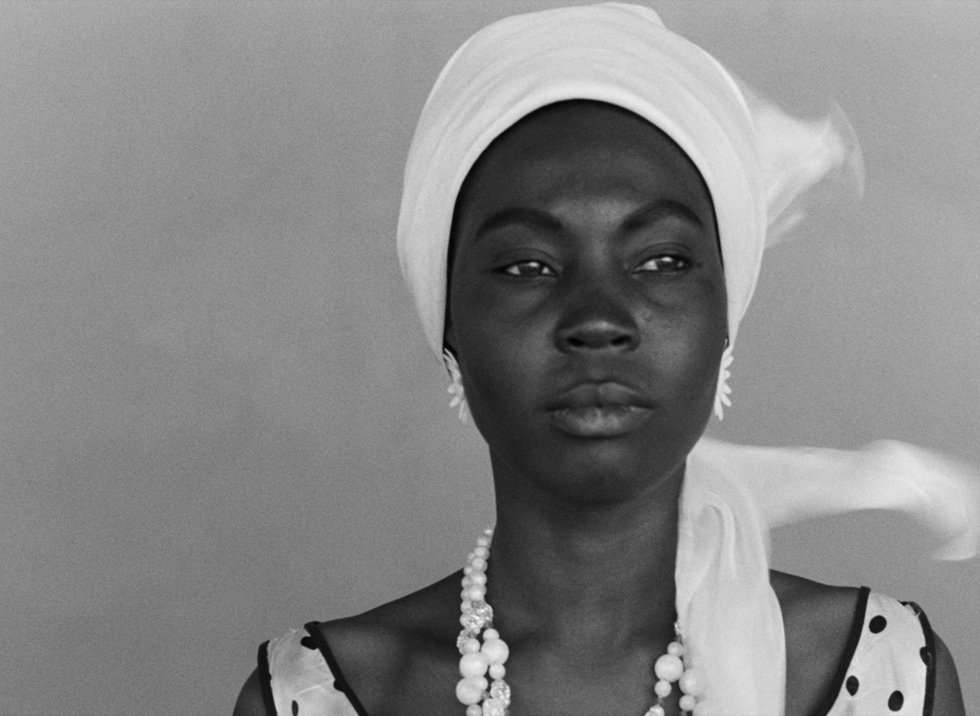The Wide World of Shorts – Black Girl (1966 directed by Ousmane Sembène, Senegal / France)
Written by Matt Olsen
The first question asked about Black Girl (at least in this column) must be “Is this really a short film?” At just under one hour, it’s definitely a short film but is that too long to consider it a Short Film? Where’s the breaking point? Because no discernible governing body exists to provide a universal index of weights and measures, I’m going to make my own reckless determination that any movie under an hour counts. Dissenters be damned.
Now that the rules and regulations have been addressed, dispatched, and codified, Black Girl or Le Noire de…, (the preposition in the untranslated title does seem to carry a different intent,) is a non-linear story told across four parts, alternating between Dakar, Senegal and Antibes, on the French Riviera.
In Dakar, Diouana – the young woman of the title – ventures into a comparatively metropolitan neighborhood of the city to seek employment as a housekeeper / nanny. Shortly, she begins work (alongside a team of other Senegalese servants) caring for the children of a wealthy French couple, living abroad. The couple is only ever referred to as Madame and Monsieur. In time, a romance develops between her and a young man, also unnamed in the film. When her employers return to France, they invite Diouana to join them in a continuation of her role.
Diouana’s arrival in Antibes is the actual chronological beginning of the film. She brings a single suitcase filled with hand-me-down dresses from Madame and a photograph of her and her boyfriend, left behind in Senegal. In the lead role, Mbissine Thérèse Diop exudes the cautious radiance of a young woman setting out on her own for the first time, full of dreamy optimism en route to independence.
Madame initially welcomes Diouana warmly into her new home. She is presented with a relatively spacious bedroom overlooking the Côte d’Azur from one of the upper floors of their high-rise apartment building.
Diouana daydreams about a enriched existence, specifically referencing the difference between her perceived glamorous future and the ever-distancing past. Abruptly, the dream dissipates as Diouana comes to recognize that she is the only servant in this household. Furthermore, the children she has supposedly been brought on to mind are nowhere to be seen nor is there absence explained. Diouana is commanded to perform every household chore: laundry, cooking, cleaning, etc. Other than to buy groceries, she never leaves the apartment and her idealistic notion of freedom is progressively eviscerated.
As Madame, Anne-Marie Jelinek descends into a near-caricature of an aggrieved harridan but there are enough hints to the dissatisfaction inherent in her marriage to engender some small trace of sympathy even as her dehumanization of Diouana grows.
The metaphor for Colonialism is clear but the dryly-observed way in which the dynamics of race and class are expressed isn’t very far removed at all from, say, certain episodes of Atlanta. Whether this film was a deliberate inspiration remains unresearched by me but it is appealing to suggest a chain of influence that begins with the films of the French New Wave. That particular revolution had begun just a few years earlier; certainly, close enough to call it contemporaneous. Sembène uses a similar unfussed naturalism in both the visual style and performance, incorporating several gritty and documentary-like sequences in the streets of Dakar and the docks of Antibes.
Of the short films covered in this series, Black Girl is probably the most well-known and widely revered. Possibly, it’s one of the most famous short films of all time alongside The Red Balloon. There was some hesitation on my part to include it for that reason but then I remembered two things. First, my earlier manifesto against rules and regulations in the arts and, secondly, my as yet unexplained enthusiasm for films about maids, butler, servants, etc., which will no doubt be the basis of another series in the not-too-distant future.
Black Girl is available on The Criterion Channel.


